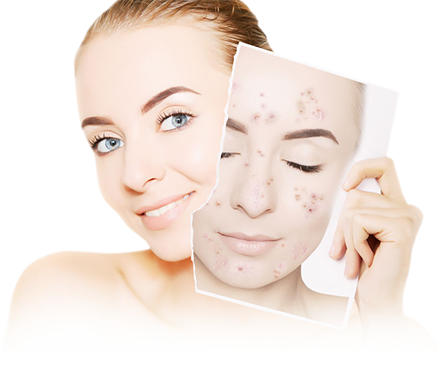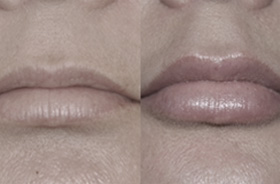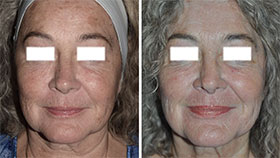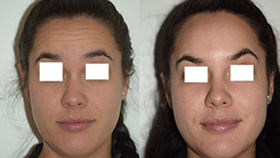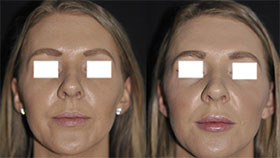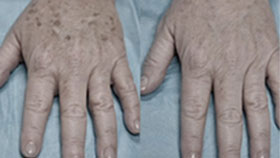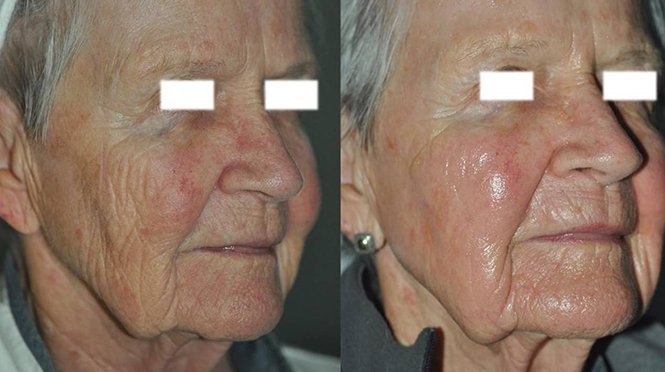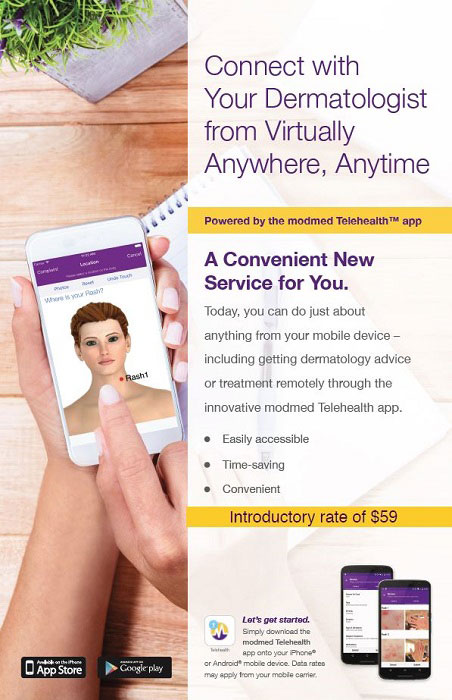Mohs Surgery
Experience the Precision and Expertise of Advanced Skin Cancer Treatment for Marco Island and Naples, FL
Each year, millions of people are diagnosed with skin cancer, making it the most common form of cancer in the United States. Fortunately, modern dermatologic advances have made treatment both highly effective and minimally invasive when addressed early. Mohs surgery for Naples and Marco Island at Skin Wellness Physicians offers an exceptional level of accuracy and effectiveness, thanks to a method that allows for comprehensive margin control. Unlike other methods, Mohs surgery is uniquely defined by the physician serving as both surgeon and pathologist, meticulously removing and examining tissue layer by layer.
Take the next step toward restoring your skin’s health and confidence with expert care. Contact Skin Wellness Physicians today to learn more about Mohs surgery for Naples and Marco Island, FL—a highly effective treatment option for certain types of skin cancer. Reach out by sending a message online or call us directly at (239) 732-0044.
What Is Mohs Surgery? A Layer-by-Layer Approach to Skin Cancer Removal
Mohs surgery is a specialized, highly effective technique used to remove certain types of skin cancer with exceptional precision. What sets it apart is its methodical, step-by-step process: the surgeon removes thin layers of cancerous tissue and examines each layer under a microscope in real time. This continues until no cancer cells remain.
Unlike traditional excisions, where only a portion of the surrounding tissue is evaluated, Mohs surgery examines 100% of the surgical margins, ensuring that all cancerous cells are removed while preserving as much healthy tissue as possible. This makes it ideal for treating cancers in delicate or highly visible areas, such as the face, ears, or hands, where tissue conservation is critical.
Does Mohs surgery cure skin cancer? By combining surgical removal with immediate microscopic analysis, Mohs surgery achieves cure rates as high as 99% for certain types of skin cancer—making it the most effective technique currently available.
Originally developed in Wisconsin by the late Dr. Frederich Mohs, this technique was born out of a need for more reliable results than those offered by traditional surgical excision, radiation, or electrodessication and curettage.
A Closer Look at Mohs Surgery: How Does it Compare to Other Surgical Techniques?
"What is the difference between excision and Mohs surgery?” This is a common question patients have. Standard excisions, or surgical removal of tissue by means other than Mohs surgery, will often involve a technique as imprecise as slicing bread. Imagine a loaf with raisins in it. If we took a slice or two of the bread to see what was inside, we could, by chance, miss the raisins entirely and mistakenly consider the bread to be plain.
Now, let's translate that analogy to medical dermatology, where the consequences for missing cancer cells due to an imprecise technique are far more significant. Basically, checking the margins on a skin cancer sample that has been removed by a standard excision technique—not Mohs surgery—can actually evaluate less than 5 percent of the total margins. Some people have put that number as less than 1 percent!
Depending on the location, size, and type of skin cancer, this may not be good enough. Fortunately, Mohs surgery offers 100 percent margin control. As a result of our ability to evaluate the totality of the surgical margins, we are able to excise less skin, making the procedure much more conservative in nature. If, after evaluating the surgical specimen slides, the physician discovers that there are still some areas where a tumor remains, the physician will map it out with accuracy down to a hair follicle, allowing for the removal of a small amount of additional tissue. This process repeats itself until the tumor is completely removed, no cancer cells are visible in any margins, and the wound is ready for suturing.
Meet our Dermatologists

At Skin Wellness Physicians, our dermatologists are board certified and thoroughly experienced in a range of medical and cosmetic treatments.





When Is Mohs Surgery Recommended?
So, what determines if you need Mohs surgery? Because of the meticulous care and advanced precision involved, Mohs surgery is typically reserved for skin cancers that require the highest level of accuracy and tissue conservation. Dermatologists carefully assess several factors to determine whether this approach is the most appropriate option.
Key considerations include the location of the skin cancer—such as the head, neck, hands, feet, genitals, or shins—where preserving healthy tissue is especially important for function and appearance. The size and type of cancer also play a major role in this decision, along with any history of recurrence.
In addition, certain extenuating factors may make a patient a strong candidate for Mohs surgery. These include a compromised immune system, specific genetic conditions, previous radiation to the area, or a recurrent tumor that has returned after prior treatment. A patient’s age and overall health status are also taken into account, ensuring that Mohs is only used when its benefits truly outweigh the demands of the procedure.
Mohs Surgery Backed by Fellowship-Trained Experts at Skin Wellness Physicians
At Skin Wellness Physicians, we are committed to the highest standards in skin cancer treatment—which is why we exclusively partner with fellowship-trained Mohs surgeons certified by the American College of Mohs Surgery. While other organizations, such as the American Society of Mohs Surgery, offer shorter training pathways, the American College maintains the most rigorous standards in the field.
To earn certification through the American College of Mohs Surgery, physicians must complete a full-year fellowship focused solely on Mohs surgery and advanced reconstruction techniques. This intensive training includes performing a high volume of complex cases under expert supervision to ensure proficiency in both cancer removal and the cosmetic or functional repair of the surgical site.
Importantly, all major clinical studies demonstrating Mohs surgery’s unmatched cure rates of 95 to 99 percent were conducted by surgeons trained through this fellowship pathway. To provide the safest, most effective treatment possible, we strongly recommend that patients seek care from a Mohs College member for their skin cancer surgery.
Schedule a consultation with Skin Wellness Physicians to explore whether Mohs surgery for Naples and Marco Island, FL, is right for you. Call (239) 732-0044 or contact us online today.
Answers to Your Most Common Mohs Surgery Questions
Preparing for your Mohs surgery can help make your experience as comfortable and stress-free as possible. We encourage you to dress in layers and bring a sweater or jacket, as our office is often kept at a cooler temperature for optimal surgical conditions.
If your Mohs surgery is being performed near sensitive areas like the eyes, hands, or nose, it’s wise to have a trusted friend or family member accompany you—and possibly serve as your driver. Bandaging in these areas may interfere with your ability to drive safely after the procedure. If transportation is a concern and you’re unable to arrange a ride, your local American Cancer Society chapter may be able to connect you with a volunteer driver for cancer-related appointments.
Once you arrive, our medical team will check you in and guide you through each step of the process. Before beginning your Mohs surgery, you’ll have time to ask any last-minute questions and ensure you feel confident moving forward.
After you’ve been checked in, the surgeon will then meet with you to mark and confirm the treatment area. After the site is anesthetized by our clinical staff, the surgeon will return to perform the Mohs surgery.
Each Mohs surgery stage typically takes 45 to 60 minutes, during which time the tissue is carefully examined to ensure all cancerous cells have been removed. Between stages, you’ll be bandaged and invited to relax in our waiting area, where complimentary coffee, beverages, and light refreshments are available.
Another concern patients may have is “How many hours does Mohs surgery take?” Please expect and plan to be here all day. Oftentimes, two to four hours can be expected, though Mohs surgery is frequently unpredictable, and the surgeon often requires a substantial amount of time to remove the skin cancer.
You might be wondering, “Why does Mohs surgery take so long?” There are many factors that can lead to a prolonged Mohs surgery day, including challenges in processing the tissue, large tumors that require more time for processing or multiple stages for complete removal, or individual patient needs.
At this point, the clinical staff will bring you back to the procedure room and prepare you for wound closure. More than 90 percent of the time, a straight line will be used for closure after Mohs surgery.
Occasionally, a flap or tissue rearrangement will be required. This will result in a more geometric arrangement of suture lines that may better hide them in creases or folds, depending on where the tumor was located or how large the tumor was.
A skin graft may be used in rare occasions when other techniques are not applicable.
Lastly, we may allow for the wound to heal in on its own, letting Mother Nature do the job. Less than 1 percent of the time we may need to collaborate with another surgical specialist to provide tertiary surgical services. This is something that would be discussed with you at your Mohs surgery visit or consult.
Recovery after Mohs surgery is usually smooth, but it’s normal to feel a bit tired or run down for a day or two—especially if the procedure was lengthy or involved multiple stages. This fatigue is often a result of the body’s natural healing response and the emotional or physical stress of surgery. Most patients also experience mild swelling, bruising, or tenderness near the surgical site, all of which typically improve within a few days. With proper wound care and rest, recovery is generally uncomplicated, and our team will provide clear instructions to support a healthy healing process.
Proper healing after your Mohs surgery begins with a few simple supplies—and our team will make sure you leave the office with clear, customized instructions for caring for your surgical site.
Depending on the location and extent of the Mohs surgery procedure, you may need to clean and dress the area at home after removing the initial bandage. To make things easier, we recommend gathering the following items ahead of time:
- Hydrogen peroxide
- Q-tips
- White vinegar (any inexpensive store brand is fine)
- Non-stick gauze pads
- A clean container of Vaseline or white petrolatum
- Paper tape
- Tylenol for pain relief (avoid ibuprofen, as it can increase bleeding)
- Waterproof bandages (especially helpful if you plan to swim)
Important: Please do not use over-the-counter antibiotic ointments such as Neosporin or Bacitracin, as these can often trigger allergic skin reactions that delay healing.
Our clinical staff will walk you through your specific aftercare plan before you leave the office and explain more about what to expect after Mohs surgery, so you’ll feel confident managing your recovery at home.
We commonly prescribe antibiotics prior to Mohs surgery or after surgery depending on the location, type of repair, or other extenuating circumstances. Pain pills may be prescribed depending on whether the physician feels the post-operative pain will be inadequately controlled by over-the-counter Tylenol. Mohs surgery patients require prescription narcotics for post-operative pain control less than 5 percent of the time.
Comprehensive Skin Cancer Care and Treatment for Other Dermatological Conditions
While Mohs surgery is an outstanding option for certain skin cancers, it’s not the only treatment available. At Skin Wellness Physicians, we offer a full spectrum of skin cancer management options beyond Mohs surgery tailored to each patient's needs, diagnosis, and lifestyle.
These may include standard surgical excision, cryotherapy, topical medications, electrodessication and curettage (ED&C), and advanced photodynamic therapy. Our dermatologists carefully assess the type, stage, and location of the cancer—as well as your overall health and goals—to recommend the most effective and least invasive solution possible.
In addition to skin cancer care, our team also treats a wide range of other dermatological conditions, including acne, rosacea, psoriasis, eczema, and more. Whether you're managing a chronic skin disorder or seeking guidance on a new concern, our board-certified dermatologists provide compassionate, customized care to help restore your skin’s health and appearance.
For trusted care and advanced treatment, reach out to Skin Wellness Physicians about Mohs surgery for Naples, FL, and Marco Island. Send us a message or call (239) 732-0044 to book your consultation.

